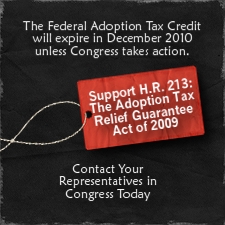It all started when I read this quote which really blew everything wide open for me:
"What a sad thing it is to see that most people never even bother to think about the reason for their existence, but live as if they believe themselves created only to build houses, plant trees, cultivate the garden, pile up wealth or do frivolous things. Consider your own past life. Say, "Lord, what was I thinking of when I was not thinking of You? Whom did I love when I was not loving You? I should have fed upon the truth, but I glutted myself with vanity and served the world instead of serving the truth." -- Saint Francis De Sales, INT. Part I, Ch. 10; O. III, p. 37
Then today, I read this from the Catholic Cathecism regarding social justice:
2423 Any system in which social relationships are determined entirely by economic facts is contrary to the nature of the human person and his acts. 2424 A theory that makes profit the exclusive norm and ultimate end of the economic activity is morally unacceptable. 2426 The development of economic activity and growth in production are meant to provide for the needs of human beings. Economic life is not meant solely to multiply goods produced and increase profit or power; it is ordered first of all to the service of persons of the whole man, and of the entire human community. Economic activity, conducted according to its own proper methods, is to be exercised within the limits of the moral order, in keeping with social justice so as to correspond to God's plan for man. 2439 Rich nations have a grave moral responsibility toward those which are unable to ensure the means of their development by themselves or have been prevented from doing so by tragic historical events. It is a duty in solidarity and charity; it is also an obligation in justice if the prosperity of the rich nations has come from resources that have not been paid for fairly.
And to top it off, as I'm writing this, it just so happens that the song, Waiting on the World To Change, John Mayer is playing in the background. Serendipitous! But anyway back to my point...
So with these ideas converging in my mind over the past month, I've been challenged to take another look at how I live my life as well as how I can live it more responsibly, in my role as a consumer, not only for my own sake, but for the sake of others. I'm not suggesting that one should radically abandon consumerism, give away everything and go live in a cave; However, I can begin by counting the real costs of my purchases and making an effort to become a more socially-concerned consumer. So this is what I'd like to do over the next year (my early New Year resolutions):
1). Really consider if what I'm purchasing is a "need" or a "want". Cut back significantly on buying the "wants". Wants include things like a wreath for my door, a candle for my bathroom, another pair of earrings...how much of that stuff, even if on sale, is really going to matter in a year's time or even by next season.
2). Whenever possible, buy from Craigslist (like our recent car purchase) or other recycled sources such as a thrift store, consignment shop, or yard sale.
3). Purchase items "Made in the U.S.A" or, better yet, from local community artisans, crafters, and such.
4). Pledge to only buy gifts for others that are "made in the U.S.A."; that support a local merchant's trade (like the golfing lessons we purchased for dad last Christmas); are handmade (check out etsy -- I'm obsessed with these creative artists); or that benefit a charity (such as purchases through Heifer, Gethsemani Farms, or Love Without Boundaries which are some of my faves)
5). Purchase from local farmers as much as possible and encourage others to do so as well.
6). Purchase only fair trade coffee and chocolates (yes, these are considered a need of mine and are purchased on a regular basis ;)
7). When purchasing from a company, make an effort to investigate the ethics of their business practices. Most have a "Social Responsibility" link on their website that gives these details.
I'm writing this post as a "note to self" and also to encourage others to consider the real costs involved when we make our next purchases. Happy shopping, and I mean that literally!









1 comment:
i really have to agree... and very happy to read your happy and oh so good thoughts....... love eliz
Post a Comment